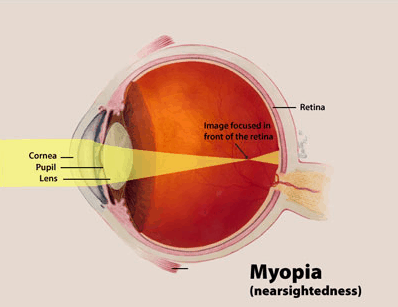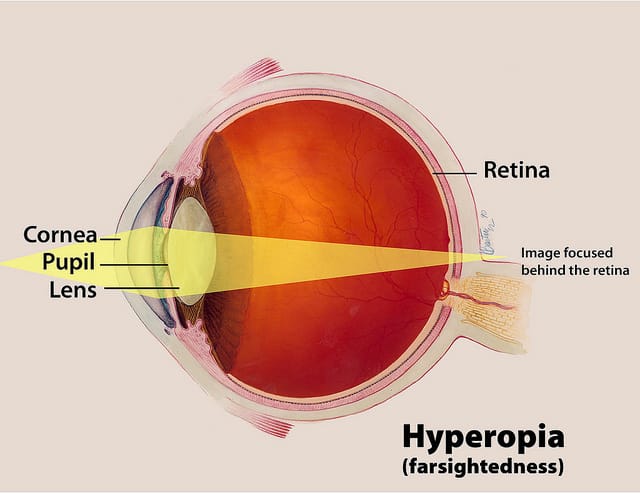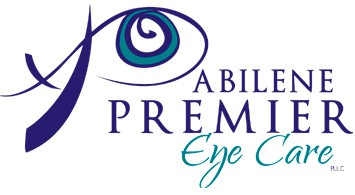Eye Conditions
Myopia-Nearsightedness

Eye Refraction
Myopia is the medical term used to describe nearsightedness. Myopic people have clear vision when looking at objects close to them, but distant objects will appear blurred. Light from an object that is a distant away, forms an image before it reaches the retina causing images to appear blurred. This could be because the eye is too long, or the cornea or crystalline lens is too strong.
Myopia can easily be diagnosed and corrected using prescription glasses or contact lenses specifically designed to counteract the effect. A concave lens (minus powered) is placed in front of a myopic eye, moving the image back to the retina and clarifying the image.
Image: Copyright by National Eye Institute, National Institutes of Health
Hyperopia-Farsightedness

Eye Refraction
Hyperopia or farsightedness is the medical term used to describe an eye condition characterized by light rays entering the eye focus behind the retina, rather than directly on it. The eyeball of a farsighted person is shorter than normal. People with hyperopia can see objects that are far away at a distance very well, but when focused on objects that are up close will appear blurred.
Hyperopia can easily be diagnosed and corrected using prescription glasses or contact lenses specifically designed to counteract the effect. There are also surgeries that can be used to treat hyperopia and may reduce your need for glasses or contact lenses.
